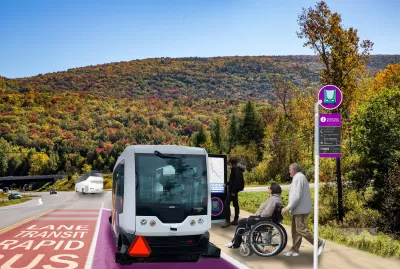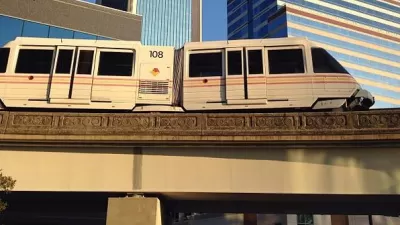Two autonomous shuttle companies closed last week, but one industry observer sees reasons for optimism for the long-term viability of the still-speculative market.

Brad Templeton provides commentary on the demise of two autonomous shuttle companies in the space of a week: Optimus Ride, an autonomous shuttle company in Boston, and Local Motors, maker of the Olli shuttle.
In examining the two closures for lessons about the viability of the autonomous vehicle industry, Templeton notes the numerous players in the shuttle market, "including May Mobility, early pioneer Navya, EasyMile, 2getThere, Transdev, Auro/Ridecell and many other players in China." The size of the market is enabled by smaller barriers to entry compared to the personal car industry, according to Templeton. But those smaller barriers to entry also imply smaller ambitions:
The robotaxi vision is world-changing because it allows car replacement, which means a big change in how our cities work. Shuttles are much less ambitious. Mostly, they make transit a bit cheaper, which is far from world-changing. It’s a pretty meager thing for self-drive technology to be doing.
And autonomous shuttles have yet to achieve even those "meager" advancements—shuttles still aren't very cheap because of the safety driver. Still, Templeton sees opportunities from the current obstacles, including the ability to operate frequent, 24/7 transit without drivers (which are in short supply) and more efficient mode switching.
More details of Templeton's optimism are available at the source article below.
FULL STORY: Two Self-Driving Shuttle Companies Fail In One Week. What Does It Bode?

Planetizen Federal Action Tracker
A weekly monitor of how Trump’s orders and actions are impacting planners and planning in America.

San Francisco's School District Spent $105M To Build Affordable Housing for Teachers — And That's Just the Beginning
SFUSD joins a growing list of school districts using their land holdings to address housing affordability challenges faced by their own employees.

The Tiny, Adorable $7,000 Car Turning Japan Onto EVs
The single seat Mibot charges from a regular plug as quickly as an iPad, and is about half the price of an average EV.

Seattle's Plan for Adopting Driverless Cars
Equity, safety, accessibility and affordability are front of mind as the city prepares for robotaxis and other autonomous vehicles.

As Trump Phases Out FEMA, Is It Time to Flee the Floodplains?
With less federal funding available for disaster relief efforts, the need to relocate at-risk communities is more urgent than ever.

With Protected Lanes, 460% More People Commute by Bike
For those needing more ammo, more data proving what we already knew is here.
Urban Design for Planners 1: Software Tools
This six-course series explores essential urban design concepts using open source software and equips planners with the tools they need to participate fully in the urban design process.
Planning for Universal Design
Learn the tools for implementing Universal Design in planning regulations.
Smith Gee Studio
City of Charlotte
City of Camden Redevelopment Agency
City of Astoria
Transportation Research & Education Center (TREC) at Portland State University
US High Speed Rail Association
City of Camden Redevelopment Agency
Municipality of Princeton (NJ)





























